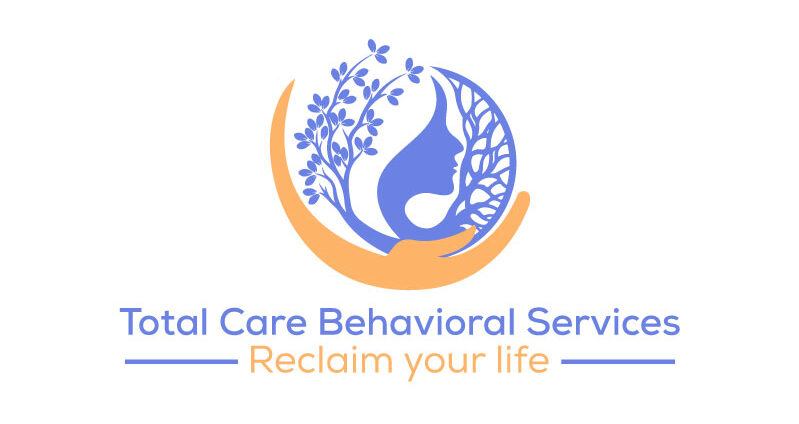Overcome Insomnia: Proven Treatments and Effective Solutions
Key Takeaways
Insomnia Disorder: A Comprehensive Overview for U.S. Audiences
Insomnia is a prevalent sleep disorder characterized by difficulty falling asleep, staying asleep, or achieving restorative sleep, despite adequate opportunities to do so. This condition can significantly impair daily functioning and overall quality of life. In the United States, insomnia affects a substantial portion of the population, with approximately 10% to 15% experiencing chronic insomnia.
Understanding Insomnia
Insomnia manifests in various forms, including:
- Difficulty Initiating Sleep: Trouble falling asleep at the beginning of the night.
- Difficulty Maintaining Sleep: Waking up during the night and having trouble returning to sleep.
- Early Morning Awakening: Waking up earlier than desired without the ability to fall back asleep.
These disturbances can lead to daytime consequences such as fatigue, mood disturbances, and cognitive impairments.
Types of Insomnia
Insomnia is generally classified into two categories:
Prevalence in the United States
Insomnia is a common concern in the U.S., with studies indicating that:
Causes of Insomnia
Insomnia can result from various factors, including:
- Stress: Work-related pressures, financial difficulties, or personal relationships can induce stress, leading to sleep disturbances.
- Mental Health Disorders: Conditions such as anxiety, depression, and post-traumatic stress disorder (PTSD) are often linked to insomnia.
- Medical Conditions: Chronic pain, asthma, diabetes, and heart disease can interfere with sleep patterns.
- Medications: Certain prescriptions, including antidepressants, corticosteroids, and medications for hypertension, may disrupt sleep.
- Caffeine and Nicotine: Stimulants like caffeine and nicotine can hinder the ability to fall asleep.
- Lifestyle Factors: Irregular sleep schedules, lack of physical activity, and excessive screen time before bed can contribute to insomnia.
Symptoms of Insomnia
Common symptoms include:
- Difficulty Falling Asleep: Taking more than 30 minutes to fall asleep.
- Frequent Nighttime Awakenings: Waking up multiple times during the night.
- Daytime Fatigue: Feeling tired or sleepy during the day.
- Irritability or Mood Swings: Experiencing mood disturbances due to lack of sleep.
- Difficulty Concentrating: Trouble focusing or remembering information.
Diagnosis of Insomnia
Diagnosing insomnia typically involves:
- Medical History Review: Assessing medical, psychiatric, and sleep histories to identify underlying causes.
- Sleep Diary: Recording sleep patterns, duration, and quality over a period of time.
- Physical Examination: Conducting a physical exam to rule out other medical conditions.
- Sleep Studies: In certain cases, polysomnography may be conducted to monitor sleep stages and identify disorders like sleep apnea.
Treatment Options
Effective treatment of insomnia often involves a combination of approaches:
- Cognitive Behavioral Therapy for Insomnia (CBT-I): Considered the first-line treatment, CBT-I focuses on changing sleep habits and misconceptions about sleep. Time
- Medications: In some cases, short-term use of sleep aids may be prescribed. However, they are generally not recommended for long-term use due to potential side effects and dependency risks.
- Lifestyle Modifications: Implementing good sleep hygiene practices, such as maintaining a regular sleep schedule, creating a comfortable sleep environment, and avoiding stimulants before bedtime.
- Addressing Underlying Conditions: Treating any medical or psychological issues contributing to insomnia.
Coping Strategies
Individuals can adopt several strategies to manage insomnia:
- Establish a Consistent Sleep Schedule: Go to bed and wake up at the same time every day, even on weekends.
- Create a Restful Environment: Ensure the bedroom is dark, quiet, and cool. Consider using earplugs, eye masks, or white noise machines if necessary.
- Limit Exposure to Screens Before Bed: Avoid electronic devices at least an hour before bedtime, as the blue light emitted can interfere with sleep.
- Practice Relaxation Techniques: Engage in activities such as reading, taking a warm bath, or practicing meditation to unwind before bed.
- Avoid Large Meals and Stimulants Before Bedtime: Refrain from consuming heavy meals, caffeine, and nicotine close to bedtime.
When to Seek Professional Help
It’s advisable to consult a healthcare provider if:
- Sleep Difficulties Persist: Experiencing sleep issues three or more times per week for over a month and noticing daytime impairments such as fatigue, mood swings, or concentration problems.
- Sleep Disorders Are Suspected: If symptoms suggest conditions like sleep apnea or restless leg syndrome, professional evaluation is essential.
- Mental Health Concerns Arise: Insomnia linked with anxiety, depression, or other psychological disorders should be addressed by a specialist.
- Medication or Substance Use Is a Factor: A doctor can evaluate whether prescriptions or other substances are contributing to sleep problems and recommend adjustments if necessary.
Prevention of Insomnia
Preventing insomnia involves cultivating healthy sleep habits and lifestyle choices. Here are practical tips:
- Prioritize Sleep Hygiene
- Keep the bedroom clean, quiet, and dark.
- Avoid using the bed for activities other than sleep or intimacy.
- Maintain a Relaxing Bedtime Routine
- Engage in calming activities such as reading or listening to soft music.
- Avoid stimulating tasks or stressful conversations close to bedtime.
- Set a Consistent Schedule
- Stick to a regular wake-up and sleep time to train your body’s internal clock.
- Stay Physically Active
- Regular exercise can improve sleep quality, but avoid vigorous workouts within a few hours of bedtime.
- Monitor Diet and Substance Use
- Limit caffeine, nicotine, and alcohol intake, especially in the afternoon and evening.
- Avoid heavy meals right before bed.
- Manage Stress Effectively
- Practice mindfulness, yoga, or other stress-relief techniques to reduce anxiety that may disrupt sleep.
Impact of Insomnia on Health
Chronic insomnia can have profound consequences on physical and mental health, including:
- Cognitive Impairments: Difficulty concentrating, memory problems, and reduced decision-making capabilities.
- Mood Disorders: Increased risk of anxiety, depression, and irritability.
- Cardiovascular Issues: Insomnia has been linked to hypertension, heart disease, and stroke.
- Immune System Weakness: Poor sleep can lower immunity, making the body more susceptible to infections.
- Weight Management: Sleep deprivation may lead to weight gain and increase the risk of obesity by disrupting hunger-regulating hormones.
Research and Advancements in Insomnia Treatment
Ongoing research continues to shed light on insomnia and improve treatment options:
- Digital CBT-I Programs: Online platforms offer convenient, evidence-based interventions for managing insomnia, such as Sleepio.
- Wearable Technology: Devices like smartwatches and fitness trackers monitor sleep patterns and provide insights to enhance sleep quality.
- Advancements in Medications: New drugs are being developed to improve sleep without the dependency risks associated with traditional sedatives.
- Personalized Sleep Medicine: Tailored treatments based on genetic and environmental factors are becoming more common.
Frequently Asked Questions
References:
- Haupt, A. (2024, August 16). The best way to treat insomnia. TIME.
- Insomnia. (2023, September 21). WebMD.
- Gordon, S. (2024, August 5). Chronic Insomnia Affects 12% of Americans—Here’s How to Know If You Have It. Health.
- What is insomnia? | NHLBI, NIH. (2022, March 24). NHLBI, NIH.

